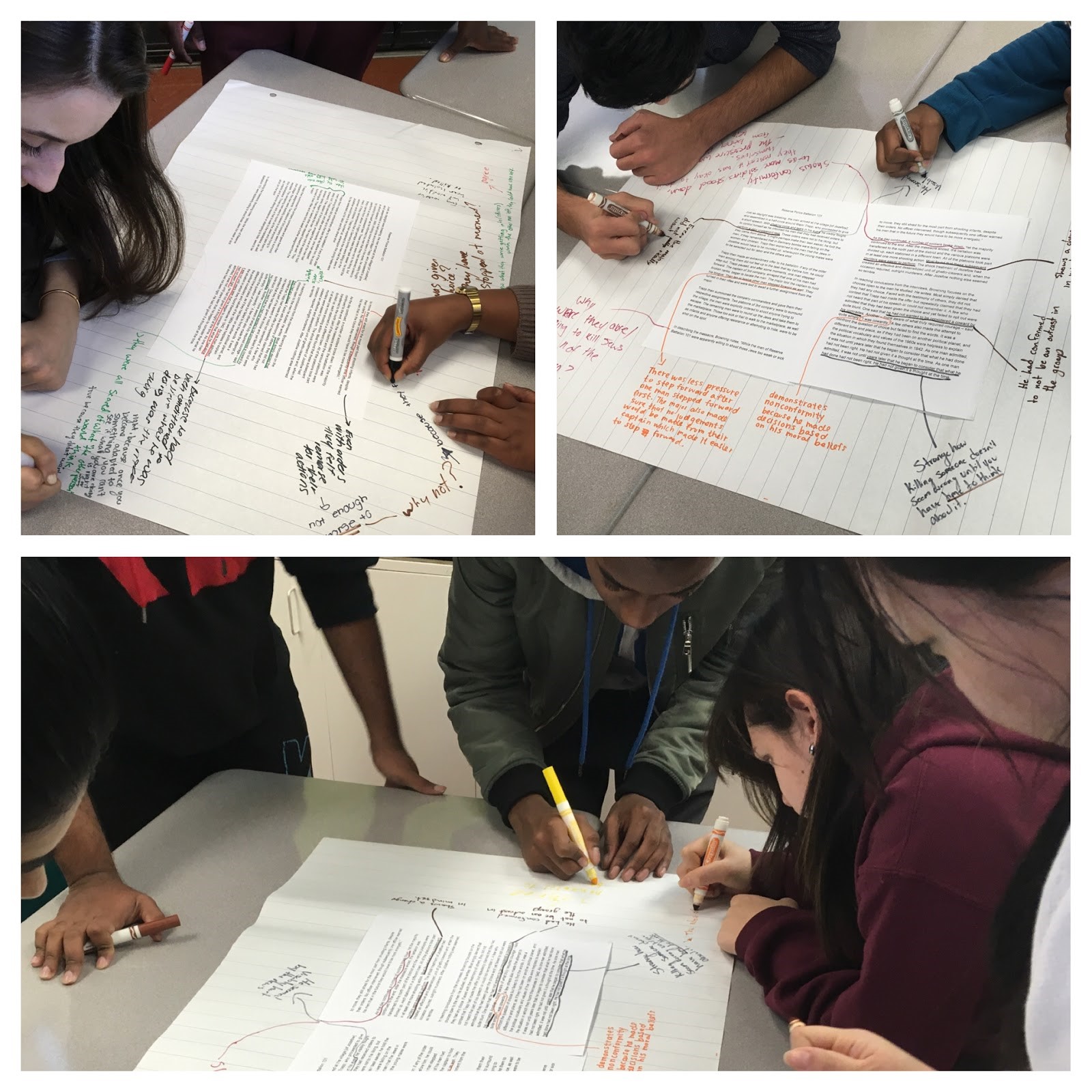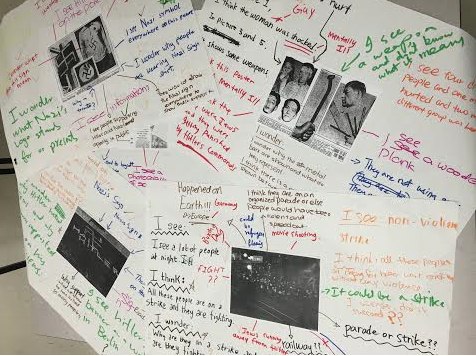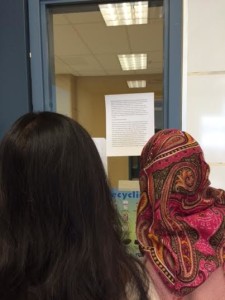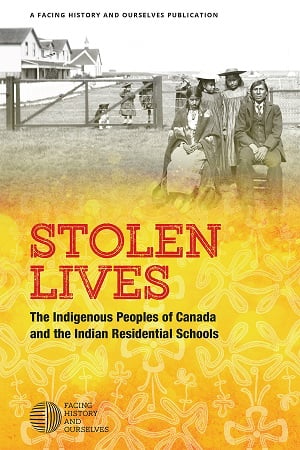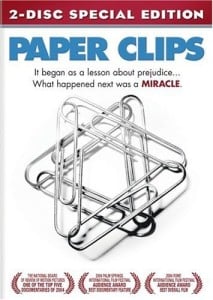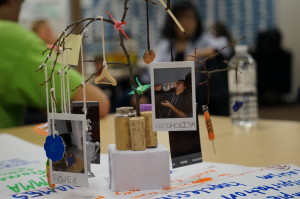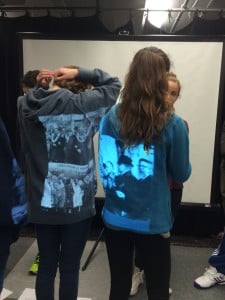Why do troubled times so often bring out hatred in humanity? In both Canada and the United States over the past few years there has been much xenophobic rhetoric spread around in light of numerous global crises. During the 2015 Canadian and 2016 American elections we saw candidates in both countries “other” identifiable or vulnerable members of society using hateful language and often using them as scapegoats for social and economic problems, all while claiming to speak for the will of those they purport to be the “silent majority”. Furthermore, we saw large groups joining the “unsilent majority” through the use of social media to spread hate, join xenophobic movements and rallies, commit hate crimes and even acts of violence. Those who criticized this movement drew many parallels between the social climate and dialogue of today to that of Nazi Germany. As educators we felt it necessary to attempt to address this recurring phenomenon.
Addressing Roots of Human Hatred: A Psychological Study on Conformity, Obedience and Behaviour
Posted by Mike Elias on January 16, 2017
Topics: Choosing to Participate, Holocaust and Human Behavior, Canada, American History, Canadian History, Bystander, current events, Upstander, big paper, CHG, HSP
Helping students view Prejudice and Discrimination as a Universal Problem
Posted by Kristen Drury on May 12, 2016
Throughout my years of teaching I began to realize something that Facing History and Ourselves so adeptly addresses- that we tend to see ourselves as “us” vs. “them.” I think that’s one of the hardest issues I’ve come across in teaching WWII, as so many students see what happened as a problem solely with Germany. “They” were racist. That could never happen “here!” It’s “their” problem. But what I really wanted to address in my classroom is that the roots of anti-Semitism and racism that led to the Holocaust were not just found in Germany!
Topics: Antisemitism, Choosing to Participate, History, Canada, Canadian History, genocide, big paper
Humans of the Woodlands: Choosing to Participate through Blogging and Photography
Posted by Alysha Groff on April 21, 2016
Each year, like all educators, I think about new culminating activities that are meaningful and engaging. Inspired by Humans of New York on Facebook, I thought this concept would fit well into my Grade 11 Genocide and Crimes against Humanity course. In fact, the more posts I read, the more I realized how closely aligned they are to Facing History’s Scope and Sequence.
Topics: Art, Choosing to Participate, Identity, Culturally Responsive and Relevant Pedagogy, reflection
Q&A with Shireen Afzal: Her advice for students entering the 2016 Student Essay Contest
Posted by Alysha Groff on April 11, 2016
The following interview was originally published on Facing Today by Stacey Perlman, a Communications Writer at Facing History and Ourselves
Shireen recently gave advice to students who entered Facing History's 2016 Student Essay Contest, based on themes from To Kill A Mockingbird. This year's contest was open to all U.S. 7th-12th grade students. Finalists will be announced soon.
Topics: Choosing to Participate, Facing History and Ourselves, Canada, Best of..., Holocaust and Human Behaviour, Social Justice
Using Facing History and Ourselves Resources and Pedagogy to teach the Grade 12 Secondary School Literacy Course
Posted by Lesa Smith on March 22, 2016
Having been an LTO (Long term occasional teacher) in the TDSB (Toronto District School Board) for several years I have taught a variety of courses with little prep time available; Facing History saved me more than a few times with their resources (and of course other teachers' contributions to this very blog). I'm delighted to be able to share some of my experience using and adapting Facing History and Ourselves resources and pedagogy in my classroom.
Topics: Film, Choosing to Participate, Human Rights, Facing History Resources, News, Identity, Facing History and Ourselves, current events, Culturally Responsive and Relevant Pedagogy, Literature Circles, Lesson Ideas, In the news, English Classroom, Social Justice, Literature, Personal history, English
Bringing Indigenous Voices into the Classroom
In December of 2012, I visited the Woodland Cultural Centre and former Mohawk Institute in Brantford, Ontario for the first time. This visit had a lasting impact upon my understanding of the residential school system in Canada. Subsequently I asked myself, how could I further embed Indigenous history into my courses?
Topics: Choosing to Participate, Facing History Resources, History, Canada, Media Skills, Technology, Truth and Reconciliation, current events, Culturally Responsive and Relevant Pedagogy, Indigenous, Lesson Ideas, In the news, Social Justice
The truth needs to be told. The truth needs to be taught.
-Anonymous student
This year has brought a lot of change to my classroom - for one, it’s in a new school! I started the year at Central Toronto Academy (CTA) in downtown Toronto. It has been a fantastic experience working with the staff and getting to know a whole new group of students. I was particularly excited to bring Facing History and Ourselves into a new school and see how it was picked up by students unfamiliar with the organization and it's pedagogy.
Topics: Choosing to Participate, Human Rights, History, Canada, EdTech, Technology, Truth and Reconciliation, Indigenous History, current events, Indigenous, In the news, Social Justice, reflection
As a middle school educator, I often find myself in the position of being unable to explore really rich resources with my class due to mature content. Several years ago I purchased 5 sets of the graphic novel MAUS, hoping to one day use it as an option for book talks.
Topics: Books, Antisemitism, Choosing to Participate, Facing History Resources, Holocaust, History, Canada, Holocaust Education, current events, Middle School, genocide, Lesson Ideas, Holocaust and Human Behaviour
Youth and Teachers Respond Collectively to Art Spiegelman's Maus Through Art and Inquiry: An Interview with Professor Rob Simon and Delta Senior Alternative School Teacher Sarah Evis
Posted by Rob Simon on December 21, 2015
In 2015, Dr. Rob Simon, Associate Professor at the Ontario Institute for Studies in Education of the University of Toronto (OISE), and students from his teacher education course partnered with Sarah Evis, a teacher from Delta Senior Alternative School in the Toronto District School Board (TDSB), and her grade 8 students, to study Art Spiegelman’s popular intergenerational Holocaust survivor memoir and graphic novel, Maus: A Survivor’s Tale.
Topics: Art, Books, Antisemitism, Choosing to Participate, Holocaust, Facing History and Ourselves, Innovative Classrooms, Holocaust Education, Middle School, Strategies, Culturally Responsive and Relevant Pedagogy, Night, genocide, Lesson Ideas, big paper, Inside a Genocide Classroom, Social Justice, Personal history
"Love thy neighbour as thyself": Helping students bridge distance in their own communities and beyond
Posted by Emily Weisberg on December 13, 2015
Dictionaries define the word “neighbour” solely based on close physical proximity; we feel close to someone because we live next door, or down the hall, or across the street. But what happens when a connection is needed from someone farther away?
Topics: Antisemitism, Choosing to Participate, Events, Facing History Resources, News, Identity, Facing History Together, Facing History and Ourselves, current events, We and They, Culturally Responsive and Relevant Pedagogy, Lesson Ideas, In the news

